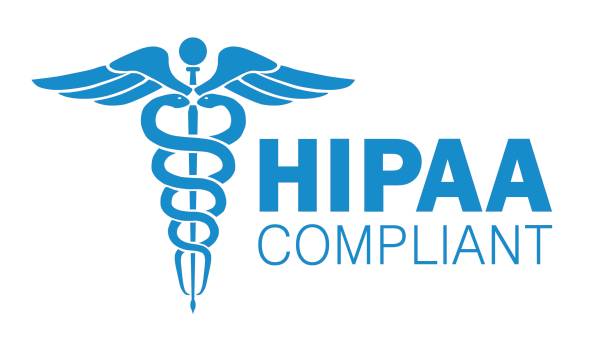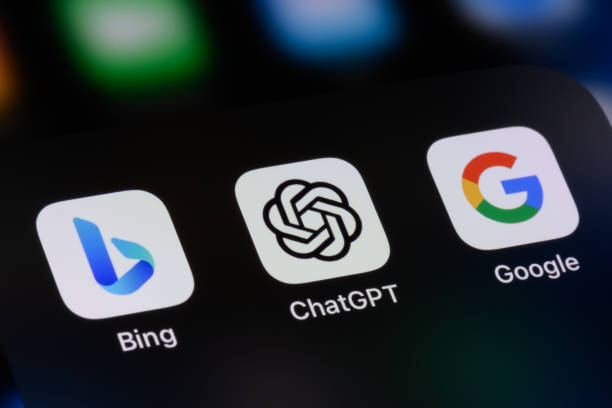When a client shares their struggle with addiction, they entrust you with their story, expecting it to remain as safe as their hope for recovery. HIPAA-compliant tools for addiction counseling protect this trust, ensuring every video call, note, or message is shielded by the strict privacy standards of the Health Insurance Portability and Accountability Act (HIPAA) and 42 CFR Part 2 for substance use disorder (SUD) treatment. In 2025, as digital tools like telehealth and electronic health records (EHRs) redefine counseling, these secure platforms empower addiction counselors to focus on healing while safeguarding client data. This narrative weaves practical insights, tool comparisons, and compliance strategies to help counselors adopt HIPAA-compliant tools for addiction counseling, creating a practice that’s both impactful and secure. Discover secure solutions at Mental Health IT Solutions.
Table of Contents
- Why HIPAA Compliance Is Essential
- Understanding HIPAA and Part 2 Standards
- Must-Have Features of Secure Tools
- Comparing HIPAA-Compliant Tools
- Delivering Secure Telehealth
- Managing Client Records with Confidence
- Communicating Safely with Clients
- Training Your Team for Compliance
- Monitoring Tool Security
- Selecting the Best Tool for Your Practice
- Frequently Asked Questions (FAQs)
- Conclusion
Why HIPAA Compliance Is Essential
Imagine a client opening up during a virtual session, confident their words won’t leak beyond the screen. HIPAA-compliant tools for addiction counseling make this possible, protecting sensitive information like treatment histories or sobriety milestones. Without compliance, counselors risk severe penalties—up to $1.5 million annually—and loss of client trust, especially critical in SUD treatment where stigma heightens privacy needs. These tools, from telehealth to EHRs, ensure counselors meet federal privacy laws, freeing them to focus on recovery rather than legal risks. Explore digital compliance in SEO for Mental Health Therapists.
Understanding HIPAA and Part 2 Standards
HIPAA’s Privacy Rule and 42 CFR Part 2 set rigorous standards for protecting client data in addiction counseling. HIPAA mandates safeguards like encryption for all Protected Health Information (PHI), such as session notes, while Part 2 imposes stricter rules for SUD records, requiring explicit client consent for disclosures, even to family. HIPAA-compliant tools for addiction counseling must provide Business Associate Agreements (BAAs), secure data storage, and access logs to comply, ensuring counselors avoid breaches that could harm clients or their reputation. Learn more about compliance in Why Therapists Need a Blog.
Must-Have Features of Secure Tools
The best HIPAA-compliant tools for addiction counseling share features that balance security and functionality. End-to-end encryption protects video calls and messages from unauthorized access. BAAs ensure tool providers share compliance responsibilities. Audit logs track who accesses PHI, aligning with Part 2’s disclosure restrictions. Secure client portals enable safe scheduling or document sharing, while role-based access limits data exposure to authorized staff. These features streamline workflows, letting counselors prioritize therapy over technical concerns, as discussed in Therapist Marketing Guide.
Comparing HIPAA-Compliant Tools
Selecting a tool means weighing options that meet compliance and practice needs. The table below compares four types of HIPAA-compliant tools for addiction counseling, based on standard features in 2025’s digital health landscape.
| Tool Type | Key Features | Best For |
|---|---|---|
| Telehealth | Encrypted video, BAA, no software downloads. | Solo counselors, virtual sessions. |
| EHR System | Secure notes, billing, client portal, templates. | Small to medium practices. |
| Messaging Platform | Encrypted chat, role-based access, file sharing. | Ongoing client communication. |
| Practice Management | Scheduling, billing, secure client management. | Streamlined practice operations. |
These tools support secure counseling, as explored in Lead Generation for LMFTs.
Delivering Secure Telehealth
Telehealth tools are vital HIPAA-compliant tools for addiction counseling, enabling virtual sessions that feel as personal as in-person care. Choose platforms with 256-bit AES encryption and BAAs to protect video calls. Guide clients to use secure devices and private networks, and verify compliance with state telehealth laws, especially for interstate counseling. Regular security checks, like updating software, maintain safety, ensuring clients trust virtual care, as noted in Practice Growth for Therapists.
Managing Client Records with Confidence
EHR systems are core HIPAA-compliant tools for addiction counseling, securely storing PHI like treatment plans or urinalysis results. These platforms use encryption and access controls to meet Part 2’s strict confidentiality rules. Features like customizable templates for ASAM assessments save time, while secure data deletion protocols prevent breaches. Automated backups protect against data loss, letting counselors focus on therapy, as highlighted in HIPAA Compliance for Therapists.
Communicating Safely with Clients
Secure messaging platforms are essential HIPAA-compliant tools for addiction counseling, enabling safe client communication outside sessions. Unlike standard apps like WhatsApp, these tools offer encrypted chats and file sharing, with role-based access to limit PHI exposure. Counselors should train clients to use secure logins and avoid public Wi-Fi, ensuring every message builds trust. These platforms enhance care coordination, as discussed in EHR Evolution in Mental Health.
Training Your Team for Compliance
The strongest HIPAA-compliant tools for addiction counseling rely on a trained team to maintain security. Conduct annual HIPAA and Part 2 training, covering PHI handling, tool usage, and consent protocols. Simulate breach scenarios to build preparedness, and document training for audits. A well-trained team maximizes tool effectiveness, protecting clients and your practice, as noted in Mental Health UX/UI Design.
Monitoring Tool Security
Ongoing monitoring keeps HIPAA-compliant tools for addiction counseling secure. Perform quarterly risk assessments to spot vulnerabilities, like outdated encryption. Review audit logs for unauthorized PHI access, and update tools to reflect 2024 Part 2 changes, such as single-consent disclosures. Automated alerts for compliance issues streamline oversight, ensuring your practice stays protected, as explored in Teletherapy Platform Development.
Selecting the Best Tool for Your Practice
Choosing HIPAA-compliant tools for addiction counseling hinges on your practice’s size and needs. Solo counselors may opt for free telehealth tools, while larger practices need robust EHRs with billing integration. Evaluate affordability, scalability, and client usability, ensuring BAAs and Part 2 compliance. Free trials help test functionality, aligning tools with your workflow, as discussed in Lead Generation for Mental Health Professionals.
Frequently Asked Questions (FAQs)
- What are HIPAA-compliant tools for addiction counseling?
Secure platforms like telehealth or EHRs that protect PHI with encryption, BAAs, and access logs, meeting HIPAA and Part 2 standards. - Why is HIPAA compliance vital for counselors?
It safeguards client privacy, ensures Part 2 compliance, and prevents fines up to $1.5 million. - Which tools support secure telehealth?
Platforms with encrypted video and BAAs are ideal for virtual counseling. - How do I train staff for tool compliance?
Offer annual HIPAA training, simulate breaches, and document sessions. - Can I use apps like WhatsApp for client communication?
No, they’re not HIPAA-compliant; use encrypted messaging platforms instead.
Conclusion
HIPAA-compliant tools for addiction counseling are the backbone of a secure, trusting practice, protecting client stories while enhancing care. From telehealth to EHRs and messaging platforms, these tools align with HIPAA and Part 2, empowering counselors to focus on recovery in 2025. This narrative has guided you through selecting, implementing, and securing these tools, ensuring every interaction is safe and impactful. As digital care shapes addiction counseling, the right tools strengthen your practice and client outcomes. Start your secure journey with Mental Health IT Solutions.







